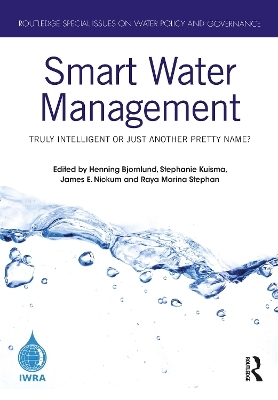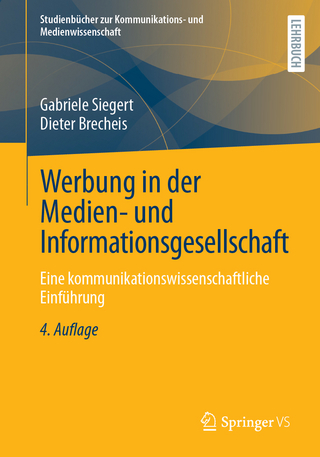
Smart Water Management
Routledge (Verlag)
978-1-032-34573-4 (ISBN)
This book contributes to the debate about the suitability and challenges of the Smart Water Management (SWM) approach. Smart Water Management has increasingly been promoted to manage water and wastewater more efficiently and cost effectively by industries and utilities in urban contexts at regional or city scales, while reducing overall consumption. It is based on the use of Information and Communication Technology (ICT) to provide real-time, automated data to resolve water challenges. Many of these technologies are complex and costly, however, and the approach tends to overlook cheaper and less high-tech (softer) approaches to address the same problems. Yet there may be opportunities for using them even in resource short rural communities in developing countries.
The book includes examples of SWM systems in practice in diverse locations from Korea, Mexico, Paris, the Canary Islands and southern Africa, aimed at addressing a diverse set of problems, including monitoring water supply to refugees. Critical voices highlight the need for smart institutions to accompany smart technologies, the absurdity of applying SWM to dysfunctional legacy infrastructure systems, whether its adoption raises moral hazards, and whether SWM is the latest example of hegemonic masculinity in water management.
The chapters in this book were originally published in Water International.
Henning Bjornlund is a Fellow and Vice President at IWRA. He is also a Research Professor in Water Management and Policy at the University of South Australia. He has been researching water management and policy issues in Australia since 1993, in Canada since 2005 and in southern Africa since 2013 where he works closely with partners in Mozambique, Tanzania, Zimbabwe, South Africa and Ethiopia. Stephanie Kuisma, a former Project Consultant for IWRA, is a climate and sustainability specialist in Melbourne, Victoria, Australia. James E. Nickum, Fellow, Global Reach Awardee and former Vice-President of the International Water Resources Association (IWRA) is the Editor in Chief of Water International, non-resident Professorial Research Associate at the School of Oriental and African Studies (SOAS), University of London and non-resident Adjunct Senior Research Fellow, East-West Center, Honolulu. Raya Marina Stephan is Fellow and Former Director of IWRA. She is an expert in water law, and an international consultant in water related projects with international organizations. She is the Deputy Editor in Chief of Water International.
Part 1: Introducing Smart Water Management 1. Smart Water Management: the way to (artificially) intelligent water management, or just another pretty name? 2. The IWRA report that sparked this book Part 2: Case Study Summaries 3. SWM technology for efficient water management in universities: the case of PUMAGUA, UNAM, Mexico City 4. K-water’s Integrated Water Resources Management system (K-HIT, K-water Hydro Intelligent Toolkit) 5. Integrated Smart Water Management of the sanitation system of the Greater Paris region Part 3: Innovative Uses and Critical Perspectives 6. Is Smart Water Management really smart? What experts tell us 7. Smart water management: can it improve accessibility and affordability of water for everyone? 8. Institutional innovation and smart water management technologies in small-scale irrigation schemes in southern Africa 9. Using innovative smart water management technologies to monitor water provision to refugees 10. A GIS-based solution for urban water management 11. SWM and urban water: Smart management for an absurd system? 12. The moral hazards of smart water management 13. Masculinity and smart water management: why we need a critical perspective 14. Deconstructing masculinity in water governance Conclusion Before you go: the editors’ checklist of what we now know about Smart Water Management
| Erscheinungsdatum | 17.07.2023 |
|---|---|
| Reihe/Serie | Routledge Special Issues on Water Policy and Governance |
| Verlagsort | London |
| Sprache | englisch |
| Maße | 174 x 246 mm |
| Gewicht | 480 g |
| Themenwelt | Sozialwissenschaften ► Kommunikation / Medien ► Kommunikationswissenschaft |
| Technik ► Umwelttechnik / Biotechnologie | |
| Wirtschaft ► Betriebswirtschaft / Management ► Unternehmensführung / Management | |
| Wirtschaft ► Volkswirtschaftslehre | |
| Weitere Fachgebiete ► Land- / Forstwirtschaft / Fischerei | |
| ISBN-10 | 1-032-34573-X / 103234573X |
| ISBN-13 | 978-1-032-34573-4 / 9781032345734 |
| Zustand | Neuware |
| Informationen gemäß Produktsicherheitsverordnung (GPSR) | |
| Haben Sie eine Frage zum Produkt? |
aus dem Bereich


